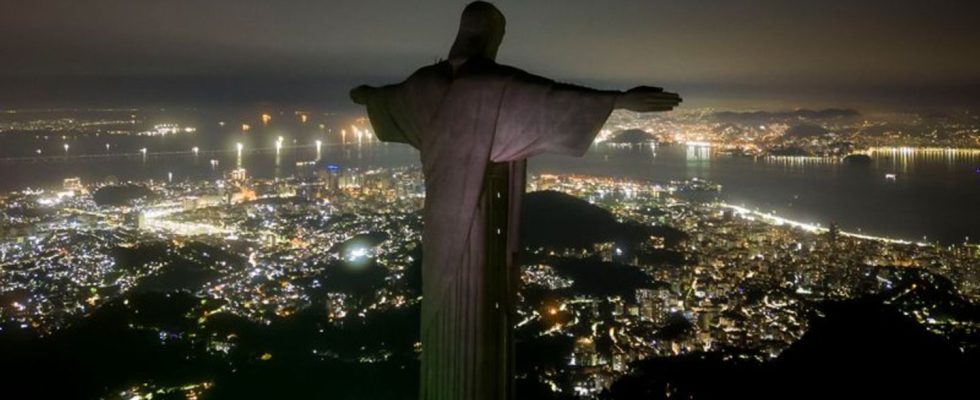environmental Protection
“Earth Hour 2024” starts in the South Pacific
The Christ the Redeemer statue in Rio de Janeiro, just before the lights that illuminate it are turned off (archive image). photo
© Bruna Prado/AP/dpa
For the 18th time, the world is celebrating “Earth Hour” and setting an example for the earth. First the lights go out in the southern hemisphere. The WWF is calling for more commitment around the world.
60 minutes of lights out for the earth: New Zealand has the ““Earth Hour 2024” has been heralded. Other countries in Oceania and the Asia-Pacific region should gradually follow suit before it finally comes to Europe’s turn.
The WWF’s global climate and environmental protection campaign, which was launched in Australia in 2007, is intended to be a visible symbol that humanity must take better care of its planet and climate protection. It’s not just citizens around the world who turn off their lights for an hour – well-known buildings are also no longer illuminated for 60 minutes.
Plant a tree or cook in a climate-friendly way
At the same time, people should also take action for the environment themselves: Every individual can make a difference by dedicating 60 minutes of their time to the earth and spending it doing something positive for the planet, said WWF International. Examples given included reconnecting with nature on a trip, cooking healthy and climate-friendly food, shopping plastic-free or planting a tree.
“It is crucial to get involved if we want to raise awareness of environmental challenges and reverse the curve of biodiversity loss by 2030,” said Director-General Kirsten Schuijt, urging people around the world to get involved in large numbers. Earth Hour is now much more than just turning off the lights, wrote WWF Australia.
In New Zealand, the Sky Tower observation and telecommunications tower and the Harbor Bridge in Auckland as well as the Parliament building in the capital Wellington were shrouded in darkness. The world-famous Opera House and the Harbor Bridge should follow in Sydney, Australia, and the iconic Arts Center in Melbourne. In Singapore, the skyscrapers around Marina Bay and Orchard Road, one of the most famous shopping streets in the world, were on the list of participants. Thailand’s capital Bangkok wanted to turn off the lights at the landmark Wat Arun (Temple of Dawn) and the Grand Palace.

